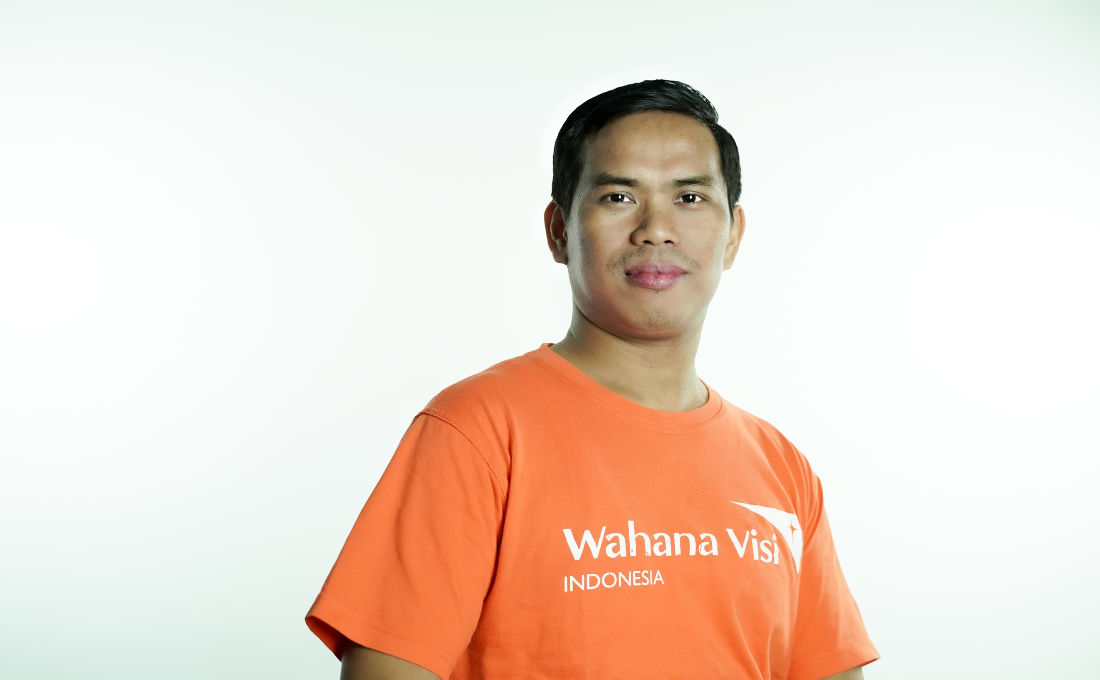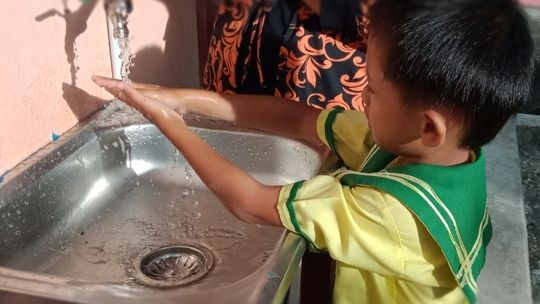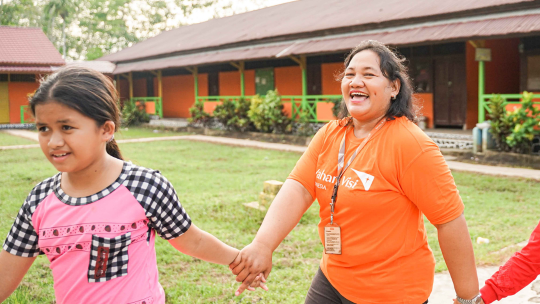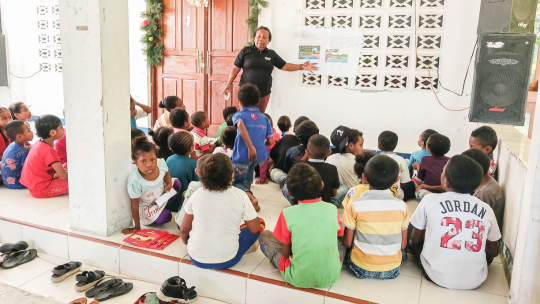A Journey of Dedication to Education in Papua

Many people believe that education is a key to breaking the cycle of poverty. If quality education is more accessible, opportunities for a more prosperous life open up. This is also what Marthen believed when he decided to take a job as a teacher in the Papua Highlands Province. After earning his bachelor's degree from Satya Wacana Christian University, he immediately left the city of Salatiga and moved to Papua. Marthen was inspired to serve as an educator for children in Papua after meeting fellow students from various provinces across Indonesia.
"The stories from my college friends, especially from Papua, East Nusa Tenggara, and Maluku, about the conditions in their communities, started to move my heart to do something tangible. In my class, I had two friends from Papua who gave me a lot of inspiration and made me curious about the magical place that is Papua," said the man who now serves as an Education Manager at the national office of Wahana Visi Indonesia (WVI).
Initially, he saw his job as a temporary form of community service and a way to gain work experience. He only planned to serve for one year in Papua but it later turned into a life's calling. Becoming a teacher to his students in the Papua Highlands was an experience that solidified Marthen's determination to continue fighting for the education of children in Papua. Even when he joined WVI, he carried the spirit of an educator in his heart.
"Joining WVI was a way for me to continue to work for Papua. I joined through the management trainee programme in 2012. After I passed, I briefly became a Database Coordinator before moving on to become a Monitoring and Evaluation Coordinator for several projects focused on the education sector in Papua. From there, I became more interested in delving into the world of education but from a humanitarian perspective. There's no doubt that my experience as a teacher was a strong motivation to continue sharing with other teachers and children in Papua," he said.
The combination of Marthen's experience as an education practitioner and a humanitarian worker in the education sector has been a significant asset. This is especially true as he delved into the foundation of community development that WVI applies to this day: transformational development. Marthen increasingly understood the root problems of the education sector, having experienced the challenges of being a teacher in a vulnerable area himself, and hearing from many other educators. This knowledge then allowed him to formulate appropriate and sustainable solutions to better meet the right to quality education for Papuan children.
Marthen and other WVI staff in various operational offices live alongside the children and communities they assist for a period of 10-15 years. Transformational development is an equal journey between WVI and the communities they serve. WVI and the community jointly assess the various vulnerabilities and potentials, and together, they formulate plans to empower children and communities, enabling them to pass on positive things to the next generation.
"For me, WVI is like a boat that carries me along the river of life, travelling from upstream to downstream. From quiet, rural areas with no sign of development to bustling, urban centres of modernisation. This journey with WVI has shown me the immense disparity between the grand vision for Indonesian children and the reality on the ground. WVI has become a learning place that gives meaning to what I do. It’s not just a routine or a job to earn a living," said the father of three.
After more than 10 years of dedication to the education of children in Papua, Marthen feels the struggle is not over yet. The perseverance and spirit of learning of the children and teachers in one of WVI's assisted villages in Papua continue to inspire Marthen to this day. He has witnessed how children and teachers must struggle to reach a school that is a 3-hour journey from their homes, the inadequate capacity of the teachers, and many other challenges. However, because this spirit is nurtured, change is not impossible.
Marthen acknowledges that the education sector in Indonesia is not in a good state. As a technical specialist, he explained, "The major issue in Indonesian education today is that access and quality are not evenly and fairly distributed for all Indonesian children, especially the marginalised. This applies not only to those in the most remote villages but also in cities. As shown in the national Education Report, the basic skills of students—both literacy and numeracy—are still a national problem."
At least 3 out of 10 school-aged children in Indonesia have difficulty reading or have not reached the basic skills expected of them. This data from the Education Report serves as a wake-up call for all stakeholders in the Indonesian education world to act more precisely and quickly to address the issues of literacy and numeracy. Foundational reading comprehension skills are crucial for the continued studies of Indonesian children.
"As a parent, the responsibility is even greater in raising and educating children who live in the age of AI (Artificial Intelligence). Foundational skills must be strong so they can pursue new knowledge, think critically and creatively, have good social intelligence, and be ready to collaborate. Papua has a lot of urgent homework to do because the worst access and quality, according to data, are there. What I and we all can do is to keep moving forward, remain optimistic, and have a big dream for the education of children in Papua and other areas in Indonesia," Marthen concluded.
Author: Mariana Kurniawati (Communication Executive)



